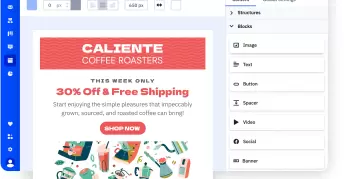Content Marketing
Learn what content marketing is and how it can convert leads, improve your SEO rankings and communicate your key messages to your target audience.
Continue Reading Continue Reading4.95K MEMBERS
Join group

Transcribe notes, video and audio recordings into new forms such as reports, articles and infographics.

Effective copywriting for your website, printed materials and other types of content that generate leads or sales.

Translate between languages for all your communication materials.

Format your documents for optimal presentation and readability

Maintain high editorial standards across all communications

Write engaging content for your website, blogs, sales copy, etc

Communicate effectively across all channels with translation and transcription

Edit your communications such as articles and reports, whether in print, email, or online.

Technical writing for instruction manuals, educational content, research, whitepapers, etc.

Proofread your communications by checking grammar, local lingo and context.

Create blog strategy, build following, create and manage content, generate sales and leads from your blog.

Write SEO-friendly content with highly targeted keywords that will attract readers and increase organic ranking.

Use ghost writers for any type of content from blogs and press releases to e-books and infographics.

Accurate on-site interpretation for a diverse range of subject matters
Plagarisim in Journalism | Unmasked as a fraud – All too easy!
Some naive individuals forget that a person researching business information and insights on-line browses through enormous quantities of content, almost on a daily basis. It is astounding to me just...
3.99K views
(Infographic) 11 Most Common Mistakes in Writing Web Content
"Content is king." This statement has been around for quite some time now, and the vast majority definitely agrees with it. But in the digital era there are quite a few mistakes people make while...
1.23K views
Why would you hire a copywriter?
What would I need to hire a copywriter for?
2.06K views

Tom Valcanis, Copywriter at I Sell Words
I am a copywriter, and I could ask myself "Why would I hire an accountant?" Because I'm terrified of numbers. If writing makes you shudder, that's why - on a very basic level, of course!
Is Your Post Ready to Be Published?
So you have written many blog posts and you are proud of them. That sounds great but how many of those posts manage to get some level of attention from the viewers in the form of comments or social...
2.5K views
Is blogging an effective way to make money?
Basically, I love to write about my travels and food, but I'm wondering if I can monetize it. How should I go about doing it?
1.08K views

Prosper Taruvinga, Digital Marketing Expert at Livelong Digital Pty Ltd
You need to first figure out what or who your audience is. When you have done that, start creating content that they resonate with. ... expand
don't quit your day job just yet. If you are going to start your own blog, there is a lot of time, money and effort to be invested first before you start seeing a return.
You need to first figure out what or who your audience is. When you have done that, start creating content that they resonate with.
In the process when they start consuming your content, figure out a product they would like that you can sell for a commission.
Keep solving their problems with your content and being consistent. Figure out ways of growing your list, Create a product and then bill that list.
There is no overnight success.
Good luck with the travels and the blog.
If you do start it, tag me in it.
What exactly is a content management system?
What is a content management system? Is this something that I would need to manage myself or do I delegate to an agency?
1.53K views

Melanie Gray, Managing Owner at MyCL (My Computer Lab)
Simply put, it's a website where non-technical people can change parts of the website. There is no need for a web programmer to do these changes.
Some CMSs are more complicated to set-up and use than others.
Writing Your First Article
So I was reading up on past articles trying to think of a topic that I could contribute on as my first article. It crossed my mind that it would be a great opportunity to document the experience of...
1.64K views
5 Reasons Why Content is NOT King
Content is one of the most important aspects of marketing businesses, but it's NOT the key element like so many will claim it is. There are several reasons why content is not king: most content does...
2.9K views
Do you invest time in blogging?
Do you have a blog? Do you outsource it? Do you think it's important to have a blog?
547 views

Yee Trinh, Cofounder at SavvySME
I don't invest time personally but I do believe it's important to have mediums through which you communicate with your target customers or whoever it may be you want to reach.. whether that be through blogging, video, email or social media.. media that you own.
To nurture existing and potential customers, it's important to have dialogue that connects you with them; a dialogue that you can control (as compared to PR/media).

Scott Yang, Founder at OzBargain.com.au
Not really the case.
The OzBargain blog was originally started back in 2005 as somehow writing was a leisure at that point in time (had 3-4 blogs back then in various topics). Bargains were just some of the things I liked ... expand
The misconception here is that the blog was there to pivot what's now the OzBargain.
Not really the case.
The OzBargain blog was originally started back in 2005 as somehow writing was a leisure at that point in time (had 3-4 blogs back then in various topics). Bargains were just some of the things I liked to write about & share with friends. It only evolved into OzBargain when I'm getting too many emails from other consumers and merchants requesting to have their deals featured on the blog. I "had enough" so built a site so they can post the deals themselves.
However prior to OzBargain launched in Nov 2006, I've probably written maybe 100+ blog posts. Again -- no advertising, no marketing but just search engines picking up those content.
Where is best to post blog content?
As per your infographic, blogs are the most critical tactic to content marketing success for B2B and B2C. Where is best to host blog content? On all platforms, on our own websites?
1.03K views

Leisa Goddard, Managing Director at Adoni Media Pty Ltd
A successful blog isn’t just about counting the number the likes and shares, a successful blog is one that can give you a link from another ... expand
To make your blogs, and importantly, the time you invest in writing them worthwhile, you should be posting them across every platform that you can.
A successful blog isn’t just about counting the number the likes and shares, a successful blog is one that can give you a link from another site to help boost your SEO, which is where your website ranks in a Google search.
The better your SEO, the easier it is for new customers and clients to find you over your competition.
What’s also worth remembering is who is going to be reading your blog and targeting it to that audience. Put simply, you need to have a strategy to make people want to engage..
For example each platform, whether it be the company’s website, Facebook or LinkedIn, has a unique connection to the audience. In our Digital PR for clients of Adoni Media we spend a lot of time analysing data and doing research so that we know exactly what each audience looks like and what “angle” will interest them.
For example, your platforms might have these audiences:
- Your company’s website attracts customers.
- Your company’s Facebook attracts the general public.
- Your company’s LinkedIn attracts potential business partners.
As a journalist I know if you don’t’ write to your audience you need not bother and it’s even more important in the business world and public relations.
Timing is also important. Know when your audience is active on social media. Again, it’s why having experts who can break down your Google and Facebook analytics is so important.
The other key to success – be consistent! It’s hard I know when you are busy with the day to day management of your business but have a schedule of topics and times. As a journalist and as someone who works in PR, I know a deadline and a strategy are the key.
Why the blog should i?
Ten years ago, blogging was an unknown phenomenon that barely made the radar of SMEs. Blogs, particularly those which are embedded in your company’s website, can not only increase traffic to your...
1.21K views
What are the steps of creating a content marketing strategy that works best for SEO?
What are the steps of creating a content marketing strategy that works best for SEO?
1.46K views

Jennifer Lancaster at I Want That CRM
Just to add to that, my blog attracts people due to the fact I used tools that help with being listed everywhere in my category, and researched what writers most want to know about - both in keyword search and in a LinkedIn author group. Writing a helpful user guide and offering it as an opt-in will help you collect more interested folk's emails for the long term. A couple of posts sporadically won't cut the mustard; once you've got 50 optimised articles or so all mobile friendly, then you'll get the visits rising. Good luck!

James Parkinson, Head of Marketing content at Personnel Checks
Having quality and relevant content will increase conversion rates and ultimately create trust between the business and customer.
Producing content that answers ... expand
Content marketing works hand in hand with traditional marketing medias and equally needs a well planned strategy.
Having quality and relevant content will increase conversion rates and ultimately create trust between the business and customer.
Producing content that answers questions and helps the reader not only fulfils the task of keeping an audience engaged, generates inquiries and sales but also boosts your online visibility on search engines.
When planning a content marketing strategy that drives inquiries it is worth considering the following things:
- Calendar events that you can sync content to.
- Themes that customers can relate to.
- Seek out problems that your customers need solving.
- Develop a list of your ‘golden’ keywords to be the building blocks of all articles.
- Distribution - planning where the content will be delivered to reach your desired target audience.
- Observe your competition - notice keywords and media mix.
- Create the whole story - don’t just front load the customers journey - keep the quality thread throughout their whole experience.
Once you have created content make sure you repurpose it - different sources of traffic may want to consume the information in different ways depending on how much time they have got or what device they are using - for example someone with lots of time may want to scroll through a detailed article but another person researching on their phone during their break may prefer an infographic that gives them summaries of the content. Not forgetting those commuters that like to digest podcasts or watch video’s.
It goes without saying that to build a business you have to continuously evolve and try new things, as well as testing variations. Growth hacking is a term that covers the business desire for fast growth on small budgets.
The main goal will be to build a large customer base that you can then focus on retaining. By combining strategy, testing and analytics a growth hacker is able to make quick decisions to move forward in the direction that is most successful.
- Top influencers in Content Marketing
 Steve Osborne
Steve Osbornedirector at Stephen Roger Osborne
Top 30%
Content Marketing Tom Valcanis
Tom ValcanisCopywriter at I Sell Words
Top 10%
Content Marketing Hamish Anderson
Hamish AndersonFounder and Director at Mesh Consulting
Top 10%
Content Marketing -
Featured Offer
This is a Premium Business feature
Content Marketing
Did you know 53% of marketers reported that blogging was their top content marketing priority in 2021? (HubSpot, 2021)
But why?
Shouldn't they be focused on creating copy for ads, social media posts, and landing pages instead of articles and content?
Well, not exactly.
According to a study done by Key Difference Media, 78% of consumers admitted they would trust your brand more if you create more customized content.
According to Dragon Search Marketing, "61% of consumers' buying decisions are influenced by custom content."
The average close rate across all industries is 4.1% on the Google search network, 0.6% on the Google display network, 1.7% on direct mail or print advertising, and 14.6% on SEO leads, according to smartinsights.com and Search Engine Journal.
And, while it's not quite comparing apples to apples, the main idea is "content is king." Well, "customized content targeted to the right audience is king."
What is Content Marketing?
Content marketing is a type of marketing centered on designing, creating, and sharing content for targeted users online. All businesses, companies, and organizations of any size can benefit from content marketing. It doesn't matter if you own a restaurant, plumbing service, real estate agency, brick-and-mortar business, virtual business, or operate a charity. All organizations and companies at any stage can benefit from content marketing. Whether you're starting a business and content project from scratch, expanding your services, trying to solve a complex problem, or run an already established business, content marketing will help you grow.
How does content marketing help my business?
So, why should you utilize a content marketing strategy for your business?
There are several advantages. Implementing a content marketing strategy helps your business by:
- Drawing attention to your site and developing leads.
- Increasing your client base.
- Generating or increasing sales.
- Raising brand awareness or credibility.
- Engaging an online community of users.
But, how? How does a content marketing strategy make all of this happen?
Generate more leads
According to Demand Metric, content marketing generates three times as many leads and costs 62% less than traditional marketing methods.
The best content marketing stories effectively educate and provide value to your audience. Content marketing should be a natural conversation with your target audience to offer them appropriate value regarding your business, product, or service. This free value pays dividends as providing it leads to a growing number of potential customers.
Improve SEO ranking
Quality content marketing also increases the chances your target market finds you. When creating content, you should keep your customer's potential pain points in mind. If you're unsure as to what problems your customers would like to be solved, make a list whenever someone is asking questions about your business. Additionally, using the tools mentioned later in this section will help you think of additional topics to cover.
So, you’ve created the correct content, but how do you know customers will find what they're looking for?
Choosing the right keywords is essential to this process. What are keywords? According to Yoast SEO,
"A keyword, or a focus keyword as some call it, is a word that describes the content on your page or post best. It's the search term that you want to rank for with a certain page. So when people search for that keyword or phrase in Google or other search engines, they should find that page on your website."
Choosing the right keywords can be overwhelming for many. Luckily, those who are interested in creating compelling content have fantastic paid and free tools at their disposal. Some include Google's Keyword Planner, SEMrush, Keyword Explorer, and Answer the Public; all are valuable tools to help you figure out which keywords to use and see what your competitors are doing.
How does content marketing create brand value?
Content marketing isn't only helpful in bringing potential customers to your site; it also builds trust and adds to your reputation on each visit.
Solving customer's "pain points," your business provides a value they could not find anywhere else.
This contributes to brand awareness and brand loyalty. Brand awareness is how conscious consumers are regarding your brand and message. This matters because consumers are 71% more likely to buy from a company they recognize.
Not only that, but strong content shows your customers the qualities that make your brand unique.
How do you start developing a content marketing strategy?
Developing a content marketing strategy can be broken down into two stages: the Planning Stage and the Action Stage.
Planning Stage:
Ask the Right Questions
At this stage, understanding your brand's position and unique value proposition (UVP) is the most important thing. When you realize who or what you want your brand to be, you can understand what type of content you want to create.
Some question that you might want to ask yourself to start brainstorming about your UVP and position in the market are:
- What is unique about my brand, product, or service?
- What problems does my brand, product, or service help to solve?
- What makes my brand, product, or service a better choice over my competitors?
- Who are my existing and potential customers?
- What kind of experience are my current and potential customers looking for?
- What is the competitive landscape in my industry?
- How do my top competitors market their brands?
- How can I highlight my brand's personality and uniqueness?
Define Your Business Goals
What do you want your business to achieve by implementing a content marketing strategy?
Conventional content marketing strategy goals include:
- Receiving more high-quality leads.
- Executing more sales/ increasing revenue.
- Expand brand awareness to gain influence and be seen as an authority in your field.
- Increasing the amount of traffic to your site.
- Improve SEO optimization and show up higher on Search Engine Result Pages.
- Foster more engagement with customers, whether online or through social media.
- Cut costs by creating less costly higher-converting content.
Once you establish your goals, you can start to engineer how you're going to reach them.
Get Familiar with Key Performance Indicators
Have you ever been overwhelmed by a lofty goal you've wanted to accomplish?
According to Neal Samudre, Director of Marketing at Michael Hyatt & Company and writer for Lifehack,
"It's hard to recognize where you are at reaching your goal if you have no way of measuring where you are with it."
So, it's ok if you don't accomplish that lofty content marketing goal right away. That's part of the process.
But what if there's a way to increase your chances of achieving your content marketing goals?
Neal continues, "Make your goal measurable with questions such as, "how much?" or "how many?" This way, you always know where you stand with your goals.
Luckily in content marketing, we can do this easily with Key Performance Indicators or KPIs.
KPIs allow you to know when you accomplished your goals by equipping you with milestones you can tick off as you go along.
Virtually every management tool has Key Performance Indicators, and many allow you to customize your own KPIs, so you can focus on what goals are essential to you.
Some critical Key Performance Indicators you might want to consider are those that show:
- A specific revenue target within the month, quarter, or year.
- The number of signups from your lead magnet.
- The increase or decrease of new email subscribers.
- Onsite traffic and engagement.
- Search ranking of your key pages.
- How many social media mentions, shares, and comments for your content.
- Marketing and advertising spend and the cost of acquiring leads.
Identify Your Audience
To hit your KPIs and have a successful content marketing strategy, you need to know your audience. Knowing your audience allows you to create the appropriate content to reach them.
The first step in this process is to collect existing information on the demographics of your site's visitors, email subscribers, and social media followers.
This information will allow you to determine important factors about your audience like:
- Gender
- Age
- Location
- Annual Income
- Education level
The next step to identifying your target audience is to get customer feedback. This information will provide insight into:
- Understanding your customers' needs.
- How they feel about your brand and content.
- Obtain testimonials, reviews, referrals
- This will allow you as a business owner to:
- Address those needs.
- Make adjustments to your content.
- Create more on-brand content.
- Once you understand who your target audience is and what they want, you can start building customer profiles (customer avatars/ buyer profiles).
A customer profile describes your ideal customer or reader so that you can target that person more efficiently.
The most reliable customer profiles are those that rely heavily on the data and feedback you've already collected. This includes a customer's pain points, obstacles, motivations. With this information, you'll be able to create meaningful content that will benefit your audience.
Find Relevant Topics and Get Organised
By this point in the strategy you should already know what your target audience is interested in. You can further supplement this by using a tool like SEMrush, Google Keyword Planner, or Answer the Public to give you additional ideas for subjects to cover questions to answer and possible subtopics.
Have a Content Distribution Plan
When creating a content distribution plan, there are several things you should remain mindful of.
The first is to implement omnichannel communication to your audience.
What does that mean?
Omnichannel communication is a fancy buzzword that means sharing a consistent message across all platforms and devices. This provides current and potential customers a clear, organised image of who you are as a business.
Your next step is to determine which platforms your audience spends most of their time on. We can go back to the Identify your Audience section of this guide to see what demographics to look for and which social media channel demographics align with your business's. The type of content you want to create also plays a vital role in which social media platforms will best suit your business:
- Pinterest categorizes visual content pieces like infographics, schemas, or original images. These can be linked to draw traffic to a website.
- Instagram is an excellent place for individuals or businesses that have products or services that are visually appealing and is especially effective for B2Cs.
- Facebook is excellent for an older audience where stories are prominent and can become viral.
It's up to you to determine which social media platforms will be best for your business.
Action Stage:
Create Your Content
Before you start writing, you need to recognize two things:
- What's already out there.
- How your content will provide a new real value for your audience.
Doing a quick Google search will allow you to observe the top content on the topic you want to cover. After that, you can determine if you wish to improve on that information or contribute original research.
Now it's time to write! Keep your brand's personality in mind while you're crafting content.
Distributing and Marketing Your Content
Your content is written, and you're ready to share it with the world. Congrats!
Here are some great ways to distribute your content:
- Schedule your content to be posted on your various social media platforms.
- Email marketing is the best way to share content with customers who have already opted-in to your brand.
- Sharing content through a network of influencers is a great way to reach a wider audience of like-minded individuals who may not have seen your content otherwise.
- Blog and article sharing platforms like Medium, Outbrain, and PR Newswire are great ways to amplify your content marketing reach.
Analyze Your Performance
Analyzing your content performance after sharing it is the most beneficial way to learn what connects with your target audience and decide what type of content to create next.
Your readers will give you a clear indication of what interests them by either choosing to engage with your content or not.
Here are some Key Performance Indicators to watch after sharing your content:
- Unique visitors
- Pages per session
- Bounce rate
- Likes, shares, comments, and mentions.
- Organic Traffic
- Number of leads
- Conversion Rate.
It doesn't matter what type of business you run; with an effective content marketing strategy in hand and the ability to execute it, your brand will surely see improvements. It's crucial to have quality content marketing because it will draw attention to your business, develop leads, grow your client base, increase sales, raise brand awareness, and engage an online community of users. Creating a solid content marketing strategy is the key to creating quality content marketing. It takes a lot of planning, but if you're able to focus on asking the right questions, define your business goals, get familiar with some Key Performance Indicators, identify who your audience is, find relevant topics to write about, have a content distribution plan, create your content, and analyze the feedback, you will be successful.
If you're stuck at any point in the process, we have hundreds of resources (and experts to help you) right here on SavvySME - from marketing agencies to bloggers and writers.
Whether it's content creation, content distribution, or content marketing, we've got you covered.
We understand there's a lot of work involved with running a business, but the good news is you don't have to do it alone!
Read more about content marketing agencies, the services they offer, and how they can help you.
You may also like to read our content marketing Q&A, or check out our list of related articles.






